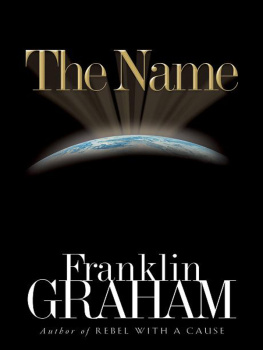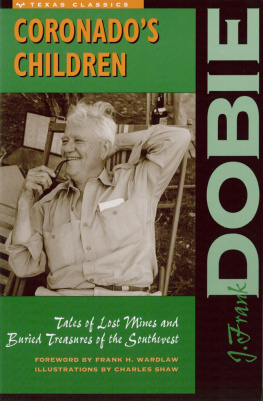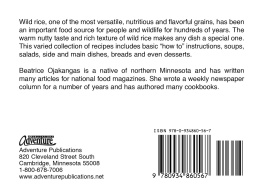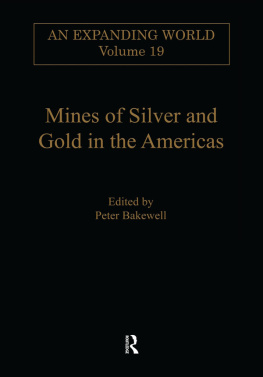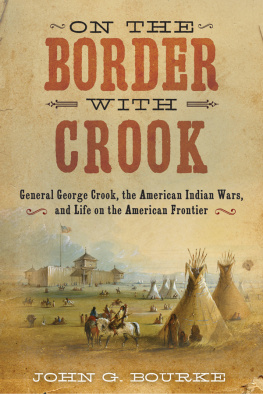MY ADVENTURES WITH YOUR MONEY
* * *
GEORGE GRAHAM RICE
*
My Adventures With Your Money
First published in 1911
ISBN 978-1-62013-779-6
Duke Classics
2014 Duke Classics and its licensors. All rights reserved.
While every effort has been used to ensure the accuracy and reliability of the information contained in this edition, Duke Classics does not assume liability or responsibility for any errors or omissions in this book. Duke Classics does not accept responsibility for loss suffered as a result of reliance upon the accuracy or currency of information contained in this book.
Contents
*
Foreword
*
You are a member of a race of gamblers. The instinct to speculatedominates you. You feel that you simply must take a chance. You can'twin, yet you are going to speculate and to continue to speculateandto lose. Lotteries, faro, roulette, and horse-race betting beingillegal, you play the stock game. In the stock game the cards(quotations or market fluctuations) are shuffled and riffled andSTACKED behind your back, AFTER the dealer (the manipulator) knows onwhat side you have placed your bet, and you haven't got a chance. Whenyou and your brother gamblers are long of stocks in thinly marginedaccounts with brokers, the market is manipulated down, and when youare short of them, the prices are manipulated up.
You are on guard against the Get-Rich-Quick man, and you flatteryourself that you can detect his wiles at a glance. You canone kindof Get-Rich-Quick operator. But not the dangerous kind. ModernGet-Rich-Quick Finance is insidious and unfrenzied. It is practised bythe highest, and you are probably one of its easy victims.
One class of Get-Rich-Quick operator uses crude methods, has littlestanding in the community, operates with comparatively small capital,and caters to those who do not think and have only small resources. Heis not particularly dangerous.
The other uses scientific methodsso scientific, indeed, that onlymen "on the inside" readily recognize them; occupies a pedestal in thecommunity; is generally a man of excellent financial standing, amember of a stock exchange; employs large capital; appeals to thinkersor those who flatter themselves that they know the difference betweena gold bar and a gold brick, and seeks to separate from their moneyall classes and conditions of men and women with accumulations largeor small.
The United States Government during the past few years, at the behestof the big fellow, who seeks a monopoly of the game, has been raidingthe little fellowthe crude operator whose power to injure is asnothing compared to the ravages that have been wrought by theactivities of his really formidable prototype.
I have a message to communicate to every investor and speculator, astory to tell of my experience through the great Goldfield, Bullfrog,Manhattan and Greenwater mining booms in Nevada of 1905-1908, in whichthe public lost upwards of $200,000,000, and of a series of greatmining-stock promotions in Wall Street and other American financialcenters, in which the public sank $350,000,000 in 1910. The narrationof the facts demonstrates that the Government's Get-Rich-Quick crusadehas made it less easy for some of the small offenders to thrive, butthat the transcendentally greater culprits are at this very momentplucking the public to a fare-you-well, and that the Government hasnot lifted a finger against them.
No man, except a common thief, ever started out to promote a miningcompany or any other company that he was convinced at the outset hadno merit; and the work of common thieves is quickly recognized and theoffenders are easily apprehended.
The more dangerous malefactors are the men in high places who take agood property, overcapitalize it, appraise its value at many timeswhat it is worth, use artful publicity and market methods to beguilethe thinking public into believing the stock is worth par or more, andfoist it on investors at a figure which robs them of great sums ofmoney. There are more than a million victims of this practice in theUnited States.
After years of experience behind the scenes, the conclusion is forcedupon me that the instinct to speculate is so strong in American menand women that they choose to "take a chance" regardless of the factthat at the outset they already half-realize they eventually mustlose.
Myself, in boyhood, a victim of the instinct to speculate, I, yearsafterward, at the age of 30, learned to cater to the insatiable desirein others. I spent fortunes for advertising and wrote my ownadvertisements. I constructed on big lines powerful dollar-makingmachinery that succeeded in getting the money for my enterprises, andI was generally my own manager. Ten years of hard work in a field inwhich I labored day and night has disclosed to me that the instinct togamble is all-conquering among women as well as menthe rich and thepoor, the young and the old, the wise and the foolish, the successfuland the unsuccessful.
Worse, if you have lost some of your hard-earned money in speculation,your case is undoubtedly incurable, because you have a freshincentive, namely, to "get even." Experience, therefore, will teachyou nothing. The professional gambler's aphorism, "You can't kill asucker," had its genesis in a recognition of this fact, and now stockpromoters and manipulators of the multi-millionaire class subscribe toits truth and on it predicate their operations.
Nearly everybody speculates (gambles); few win. Where does the moneygo that is lost? Who gets it?
Are you aware that in catering to your instinct to "invest," methodsto get you to part with your money are so artfully and deftly appliedby the highest that they deceive you completely? Could you imagine itto be a fact that in nearly all cases when you find you are ready toembark on a given speculation, ways and means that are almostscientific in their insidiousness have been used upon you?
What are these impalpable yet cunningly devised tricks that arecalculated to fool the wisest and which landed YOU? I narrate themherein.
What are your chances of winning in any speculation where you playanother man's game? HAVE YOU ANY CHANCE AT ALL?
In playing the horse races in years past you had only one chance ifyou persistedYOU COULD LOSE.
In margin-trading on the New York Stock Exchange, New York Curb,Boston Stock Exchange, Boston Curb, Chicago Board of Trade, ChicagoStock Exchange, New York Cotton Exchange and kindred institutions,experience among stock-brokers proves that if you stick to the gameyou have only one chanceYOU CAN LOSE.
In railroad, industrial and mining-stock speculation, where you buythe shares outright and hold them for stock market profits, you havetwo chances; if you are of the average and your operations are for aperiod continuousYOU CAN BREAK EVEN IF YOU ARE VERY LUCKY, OR LOSEIF YOU ARE NOT; and in justice to myself I must be allowed to explainthat I had a much better opinion of the public's chances ten years agothan I have now, and that experience on the inside has taught me this.
The moral to the investor and speculator is "Never Again!" And yet youWILL speculate again. Experience teaches that so long as the chance ofspeculative gain exists in any enterprise, so long will the Americanpublic continue in its efforts to appease its speculative appetite.
G. G. R.
Chapter I - The Rise and Fall of Maxim & Gay
*
The place was New York. The time, March, 1901. My age was thirty. Mycash capital, tightly placed in my pocket, was $7.30, and I had noother external resources. I was a rover and out of a job.



